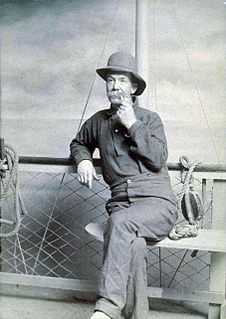A Quote by J. C. Ryle
A good conscience will be found a pleasant visitor at our bedside in a dying hour.
Related Quotes
There is indeed a certain sense of gratification when we do a good deed that gives us inward satisfaction, and a generous pride that accompanies a good conscience…These testimonies of a good conscience are pleasant; and such a natural pleasure is very beneficial to us; it is the only payment that can never fail. “On Repentance
It is pleasant to be virtuous and good, because that is to excel many others; it is pleasant to grow better, because that is to excel ourselves; it is pleasant to mortify and subdue our lusts, because that is victory; it is pleasant to command our appetites and passions, and to keep them in due order within the bounds of reason and religion, because this is empire.
I find that many Christians are in trouble about the future; they think they will not have grace enough to die by. It is much more important that we should have grace enough to live by. It seems to me that death is of very little importance in the meantime. When the dying hour comes, there will be dying grace; but you do not require dying grace to live by.
It is a common error, and the greater and more mischievous for being so common, to believe that repentance best becomes and most concerns dying men. Indeed, what is necessary every hour of our life is necessary in the hour of death too, and as long as one lives he will have need of repentance, and therefore it is necessary in the hour of death too; but he who hath constantly exercised himself in it in his health and vigor, will do it with less pain in his sickness and weakness; and he who hath practiced it all his life, will do it with more ease and less perplexity in the hour of his death.
When you say to yourself, 'I am going to have a pleasant visit or a pleasant journey,' you are literally sending elements and forces ahead of your body that will arrange things to make your visit or journey pleasant. When before the visit or the journey or the shopping trip you are in a bad humour, or fearful or apprehensive of something unpleasant, you are sending unseen agencies ahead of you which will make some kind of unpleasantness. Our thoughts, or in other words, our state of mind, is ever at work 'fixing up' things good or bad in advance.
But what of the voice and judgment of conscience? The difficulty is that we have a conscience behind our conscience, an intellectual one behind the moral. ... We can see quite well that our opinions of what is noble and good, our moral valuations, are powerful levers where action is concerned; but we must begin by refining these opinions and independently creating for ourselves new tables of values.






































